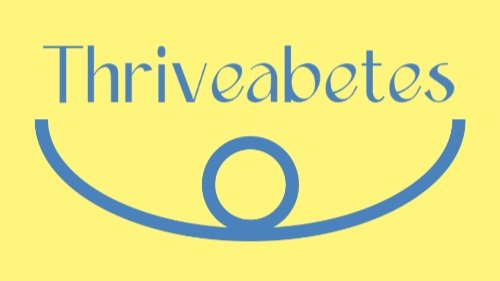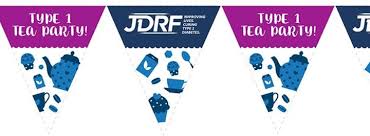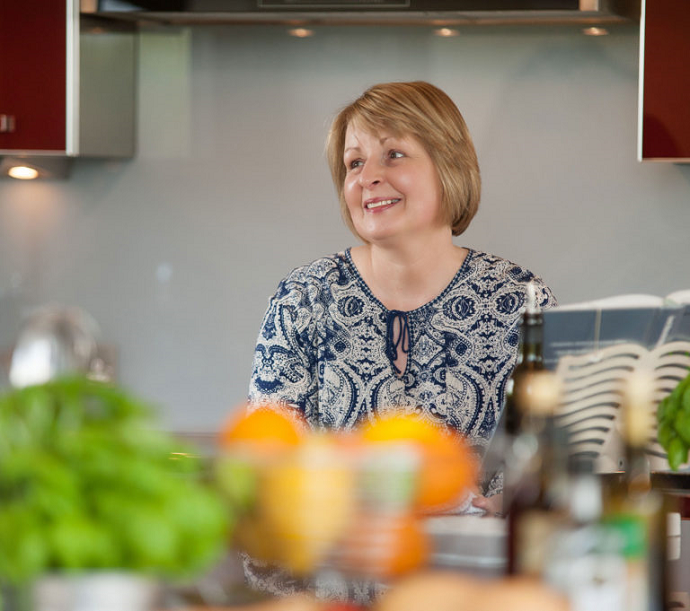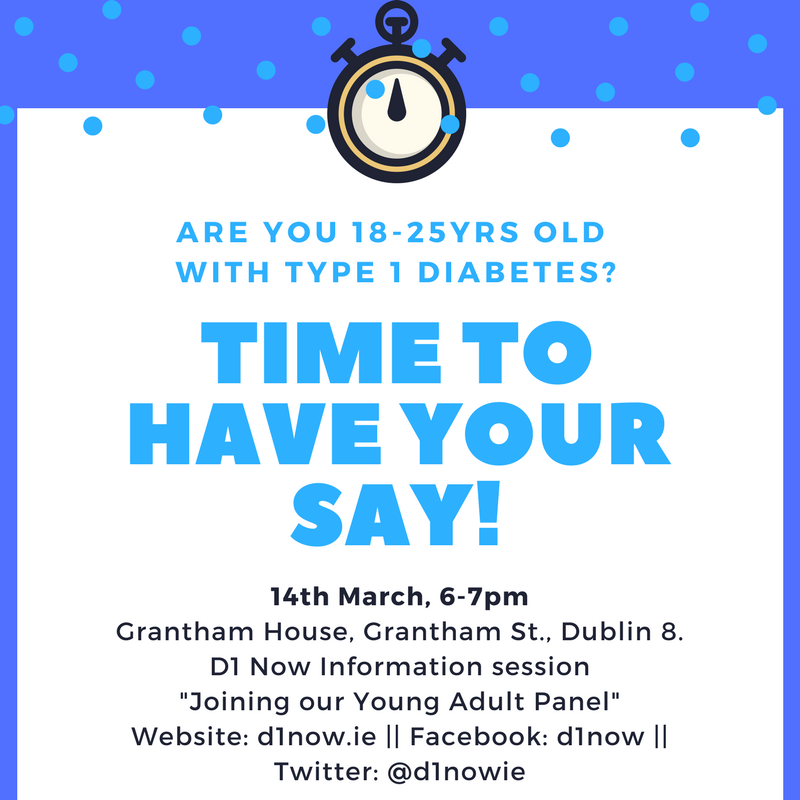Put the kettle on for a Type 1 Tea Party and raise much needed cash for type 1 diabetes research! April 21 has been designated as Type 1 Tea Party Day. The Type 1 Tea Party is a JDRF UK fundraising initiative with their Irish research partner, Diabetes Ireland. All funds raised will be split between funding Irish Type 1 Research through Diabetes Ireland Research Alliance and International Type 1 Research through JDRF UK. Diabetes Ireland has been hugely supportive of Thriveabetes since it's beginning. And I can safely say that there would not have been a Thriveabetes without them, and definitely not without it's CEO, Kieran O’Leary, or their Advocacy & Research Officer, Anna Clarke. So, I’m asking as many of you as possible to support the Type 1 Tea Party.
WHAT IS JDRF?
“JDRF is an organisation where a deeply personal connection to type 1 diabetes is present at every level." The charity was founded in the US by two mothers of children with type 1 diabetes in the 1970's, Carol Lurie and Lee Ducat who along with a "number of other men and women, often with a personal connection to the condition, helped revolutionise type 1 diabetes research and increase public and political knowledge and awareness."
JDRF UK was set up as a charity in 1986. Their commitment to eradicating type 1 diabetes and its effects for everyone in the UK with type 1, and at risk of developing it is unwavering. JDRF is globally focused on:
- funding world-class research cure, treat and prevent type 1 diabetes,
- making sure research moves forward and treatments are delivered as fast as possible and
- gives support and a voice to people with type 1 and their families
What Kind of Research?
JDRF’s investments are delivering on the promise of making life with T1D better, driving innovation and research around the world within six different therapy areas: artificial pancreas (AP), beta cell replacement, glucose control, T1D prevention, restoration and complications. Here is a review of their accomplishments in diabetes research in 2017.
Here are some examples of the ongoing Type 1 Diabetes research:
- Testing artificial pancreas technology for improved glucose control in Cambridge University
- Glucose-responsive ‘smart’ insulin: Glucose responsive insulin is a type of injectable insulin that responds to glucose levels in the blood.
- Identifying the causes of type 1 diabetes and autoimmunity: This team have previously identified many genes that influence a person’s risk of developing type 1, and have traced the effect these genes have on the body, to better understand their influence on type 1.
- Could the pancreas grow back lost beta cells? Two scientists and their team have confirmed the existence of cells within the human pancreas that can be stimulated to develop into beta-like cells. These findings could open the door for regenerative treatments that aim to cure type 1 diabetes by encouraging new beta cells to grow in the pancreas.
- Here is a link to a review of the JDRF's research accomplishments in 2017.
Irish Diabetes Research
The Diabetes Ireland Research Alliance (DIRA) was set up in 2008 as a subsidiary of Diabetes Ireland, the national charity supporting people with diabetes in Ireland. The Alliance primarily funds high quality diabetes research projects in Ireland and raises the necessary funds to support these projects. Here are some of the research projects funded by this initiative.
IS IT TEA TIME?
Tea parties or coffee mornings are not a new idea in the fundraising area but they are fun, effective and a great way to bring people together, for example, here are some fun tips on hosting your Type 1 Tea Party that will cause a stir for a cause?!? The Fundraising packs, WITH BUNTING (!!!), are available from Diabetes Ireland by registering to host here. AND there’s even a teatime table quiz.
How can you resist?
PS If anyone in Ennis can provide a venue I’m onboard with planning? My house can only take about 15 people.



 At the moment I take multiple injections but I will be going on a pump later this year. I have been using the FreeStyle Libre system for over a year and I love it, but not the cost! I had no idea what happened my blood glucose overnight until I started using Libre. It has eliminated setting alarms in the middle of the night to check my background insulin and I have been able to tweak my basal insulin and food to get fairly good overnight levels.
At the moment I take multiple injections but I will be going on a pump later this year. I have been using the FreeStyle Libre system for over a year and I love it, but not the cost! I had no idea what happened my blood glucose overnight until I started using Libre. It has eliminated setting alarms in the middle of the night to check my background insulin and I have been able to tweak my basal insulin and food to get fairly good overnight levels.
